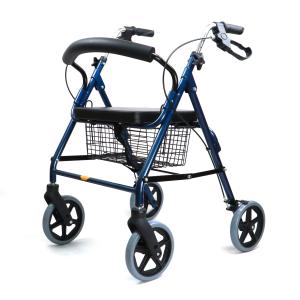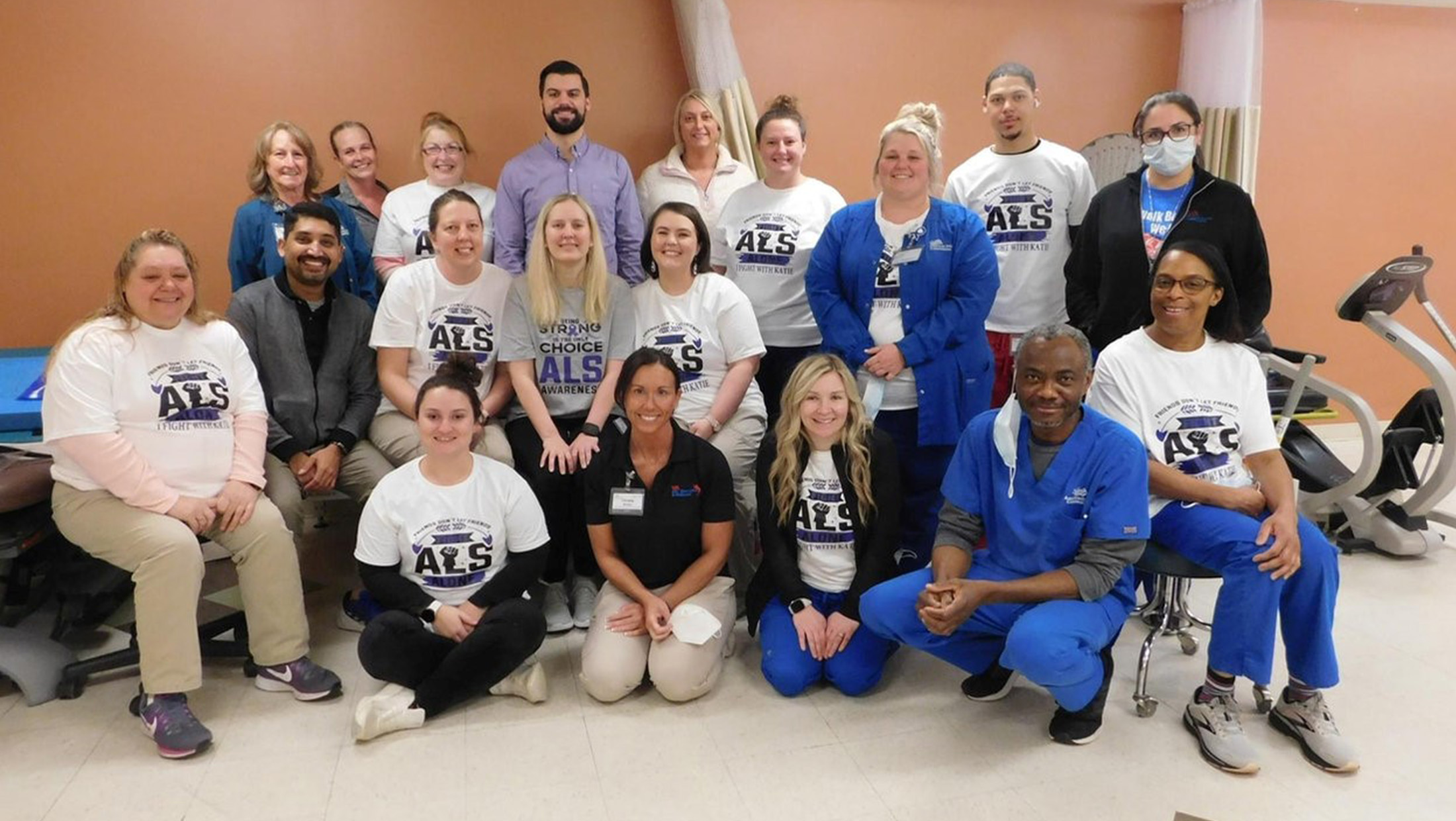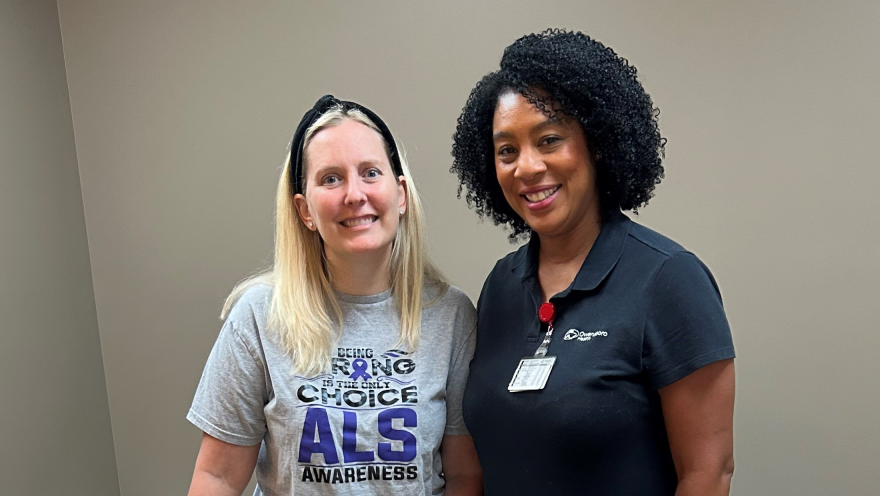October is National Physical Therapy Month, a time to shine a spotlight on the work physical therapists do and recognize the vital role they play in helping people with ALS manage challenges with mobility.
In July, we shared Katie Adams’ story, a 39-year-old mother of two young girls who is living with ALS. Prior to her diagnosis, Katie worked as an occupational therapist and rehab manager, giving her a uniquely informed perspective on ALS and the challenges it presents. Katie is graciously allowing us to share a post she recently shared on her own blog, Journey.
By Katie Adams
ALS is a very different disease. Therefore physical therapy treatment has to be different than what you would consider typical physical therapy. You can't fight it off or beat it with exercising. In fact, the wrong kind of exercising can actually make things worse.
So why do physical therapy, you ask? Physical therapy is much more than just exercising. My physical therapist is amazing. We work very well together. I was evaluated on Oct 31st, 2022. We had the referral that before my diagnosis, as I was already having gait disturbances. I began treatment two times a week, and now I get it one time a week. As I was well aware, unfortunately insurance dictates a lot of how many therapy sessions they will pay for. But I will surely take what I can get and probably fight for more. It is necessary.

We do balance work, breathing techniques, core movements, passive range of motion and stretching. She has also worked on adaptive equipment with me. I have ankle foot orthotics (AFOs) that I just selected from Amazon (that I do not wear, but I'll have to sooner than later) and I have a rollator (I use this at home every day, but I have only allowed myself to use it in public a few times). Therapists make terrible patients.
I was assessed for a power wheelchair at Vanderbilt by a physical therapist (in November 2022) and the wheelchair rep. As soon as they get done fighting with my insurance company, I should be getting this delivered to my home.
I enjoy going to therapy. Not only does it make my body feel better, it helps me mentally and emotionally.
I still feel connected to my profession by going in and seeing therapists and patients work. I miss my patients and my colleagues. I miss being able to work and to help others. I miss my normal life.

I have a new normal now, my entire family and support system has a new normal. My family and loved ones are having to join in on the physical therapy because again healthcare is completely screwed up and I won't be able to continue to have therapy for much longer. So my family is learning how to do my stretches and exercises.
Ideally, I would be passively stretched at least three times a week if not more. But that is not always possible. This will be even more important when I am unable to move at all on my own. My muscles are very spastic(tight), and this is why stretching is so important. I have already lost active range of motion in my left shoulder. My hamstrings are very tight as well as my pec muscles. I also supplement physical therapy with massages every now and then. Friends and family had gotten me gift cards for massages, and I had been gifted a massage from a dear friend who is also a physical therapist, and it was amazing!
For now, I will enjoy the one time a week physical therapy that I am getting and my occasional massage. I will supplement that with my family helping me with stretches when possible.
I wish healthcare was different and it wasn't so difficult to get what we needed. I would go to my physical therapist every day if I could!
In the future, I will need physical therapy again as different problems arise. And when I do, I know a great physical therapist who will be there ready to help me. In fact, I know a lot of great therapists that are there to help me when I need it!
Special thanks to Katie for allowing us to share her personal story with the ALS community.
To learn more about how to improve mobility while living with ALS, visit our website HERE, or download our resource guide, Functioning When Mobility is Affected by ALS, HERE.
To continue to follow stories from people in the ALS community and learn more about the disease, subscribe to receive our weekly blogs in your inbox HERE or follow us at als.org/blog.


Comments
The right kind of physical therapy for ALS is absolutely necessary - and it would be beneficial to have an ALS certification for physical therapists. When my mom was working with physical therapists, one of the "supervisors" came to do an assessment, and wanted her to stand on her own, and kept pushing her to keep standing, even though she clearly was ready to be done. She kept standing, because the physical therapist said to do it. That was the last time she ever stood on her own.
Physical therapy for pALS is to keep their movement as long as possible; they are brand new to the diagnosis, and should not have to rely on their limited understanding or research to be able to advocate for themselves. An ALS certification for physical therapists should help with this, to help reinforce for the physical therapists what not to do, and what can be done to really help the pALS and cALS.
Insurance companies need to recognize the benefits of PT to people with ALS in mitigating pain and muscle spasms, and not concentrate only on a resolution of a problem. Obviously, resolution of a particular problem is not the goal for people with ALS. My husband benefited greatly from PT consultations, and education of caregivers in providing passive exercises to relieve spasticity and tightness.
Join the conversation. Please comment below.